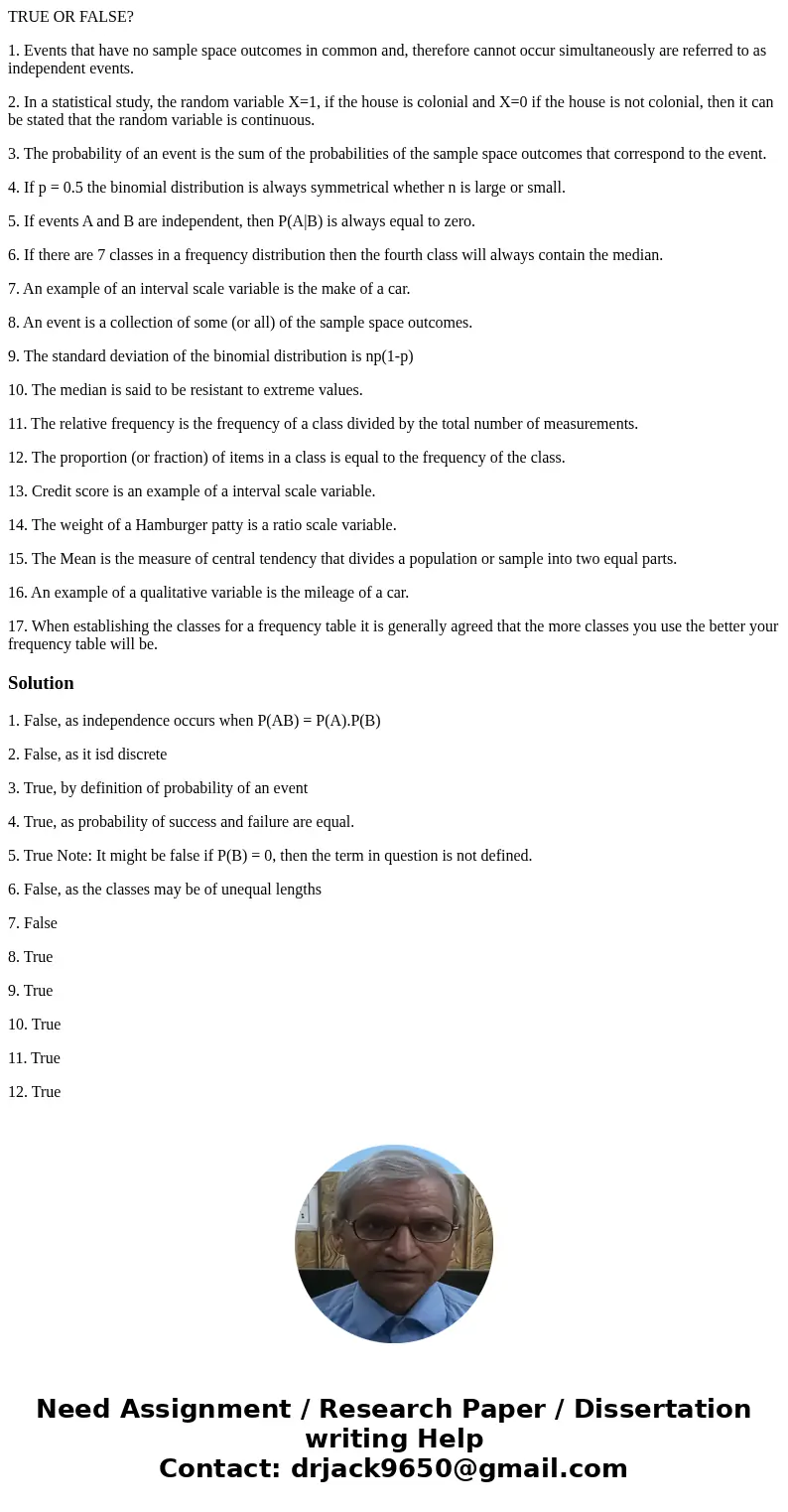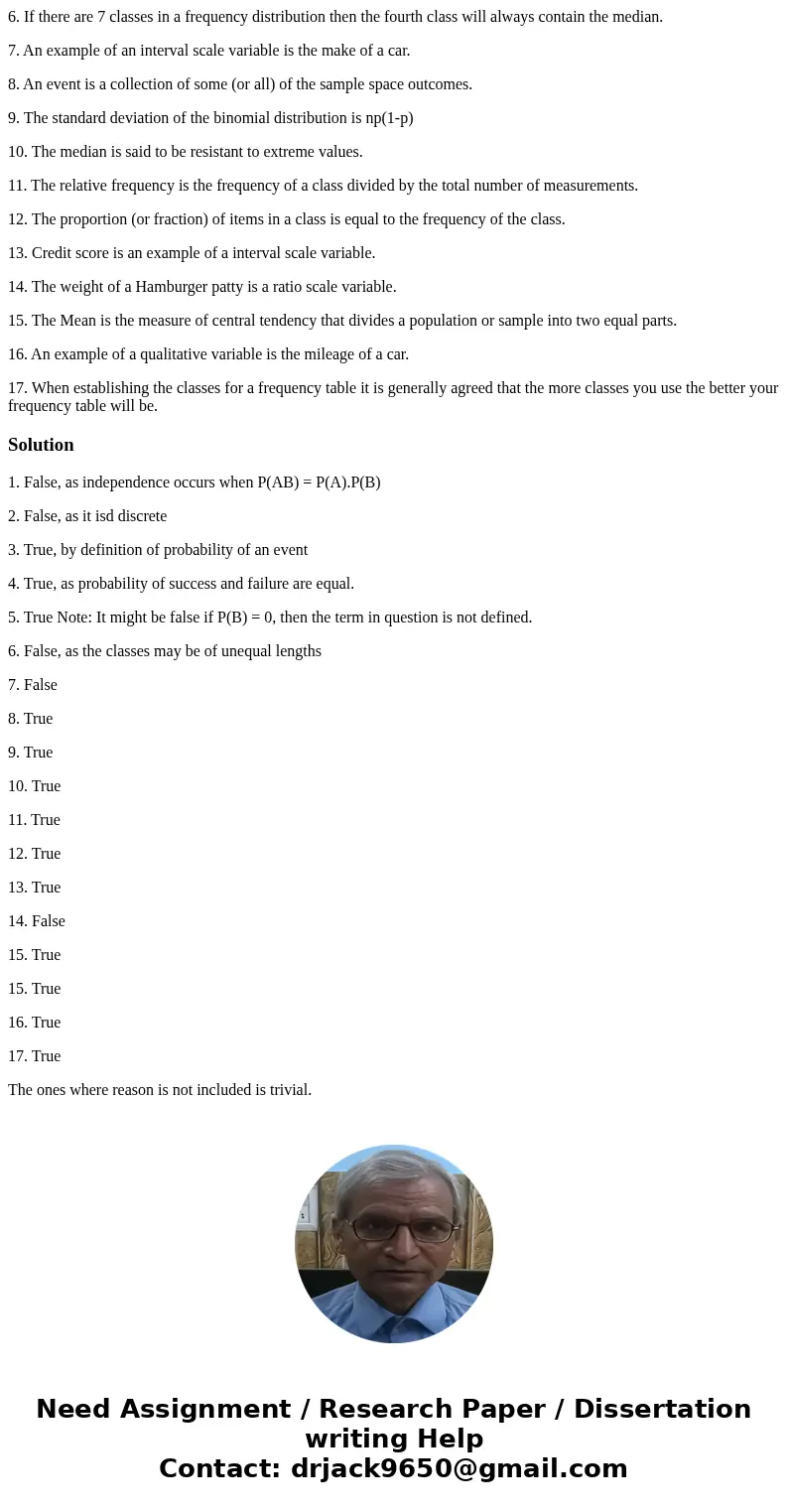TRUE OR FALSE 1 Events that have no sample space outcomes in
TRUE OR FALSE?
1. Events that have no sample space outcomes in common and, therefore cannot occur simultaneously are referred to as independent events.
2. In a statistical study, the random variable X=1, if the house is colonial and X=0 if the house is not colonial, then it can be stated that the random variable is continuous.
3. The probability of an event is the sum of the probabilities of the sample space outcomes that correspond to the event.
4. If p = 0.5 the binomial distribution is always symmetrical whether n is large or small.
5. If events A and B are independent, then P(A|B) is always equal to zero.
6. If there are 7 classes in a frequency distribution then the fourth class will always contain the median.
7. An example of an interval scale variable is the make of a car.
8. An event is a collection of some (or all) of the sample space outcomes.
9. The standard deviation of the binomial distribution is np(1-p)
10. The median is said to be resistant to extreme values.
11. The relative frequency is the frequency of a class divided by the total number of measurements.
12. The proportion (or fraction) of items in a class is equal to the frequency of the class.
13. Credit score is an example of a interval scale variable.
14. The weight of a Hamburger patty is a ratio scale variable.
15. The Mean is the measure of central tendency that divides a population or sample into two equal parts.
16. An example of a qualitative variable is the mileage of a car.
17. When establishing the classes for a frequency table it is generally agreed that the more classes you use the better your frequency table will be.
Solution
1. False, as independence occurs when P(AB) = P(A).P(B)
2. False, as it isd discrete
3. True, by definition of probability of an event
4. True, as probability of success and failure are equal.
5. True Note: It might be false if P(B) = 0, then the term in question is not defined.
6. False, as the classes may be of unequal lengths
7. False
8. True
9. True
10. True
11. True
12. True
13. True
14. False
15. True
15. True
16. True
17. True
The ones where reason is not included is trivial.


 Homework Sourse
Homework Sourse